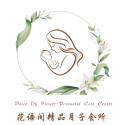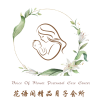Bringing a child into the world is a momentous occasion, filled with joy and anticipation. But amidst the excitement, it’s essential not to overlook the importance of postpartum care, both for the physical and emotional well-being of the mother. In this article, we explore the significance of postpartum care and how it plays a pivotal role in helping women heal and thrive after childbirth.
Postpartum care encompasses a range of factors, including monitoring the mother’s physical recovery, providing emotional support, and addressing any potential complications that may arise in the weeks and months following delivery. This period of adjustment is crucial for new mothers as they navigate the challenges of sleep deprivation, hormonal changes, and the physical strain of childbirth.
By prioritizing postpartum care, women can reduce the risk of developing postpartum depression, enhance their overall recovery process, and improve their ability to care for their newborn. Additionally, postpartum care allows healthcare providers to identify and address any potential health issues promptly, ensuring the well-being of both the mother and the baby.
Join us as we delve into the importance of postpartum care and discover how it can support women in their journey of healing and thriving after childbirth.
Physical changes after childbirth
The physical changes that occur during pregnancy and childbirth are profound. From the stretching of the abdominal muscles to the loosening of ligaments, a woman’s body undergoes significant transformations to accommodate the growing baby. After giving birth, the body needs time to heal and return to its pre-pregnancy state.
One of the most noticeable physical changes is the presence of a postpartum belly. This is a result of the stretching and separation of the abdominal muscles during pregnancy. While some women may regain their pre-pregnancy shape relatively quickly, for others, it may take several months or longer. It’s important for women to be patient with their bodies and allow for the natural healing process to take place.
Another physical change that new mothers may experience is breast engorgement. This occurs when the breasts become swollen and tender as they fill with milk. While breast engorgement is a normal part of the breastfeeding process, it can be uncomfortable and even painful. Proper postpartum care includes techniques for relieving breast engorgement, such as warm compresses and gentle massage.
- 1. To improve postpartum muscle soreness, low back, neck and shoulder pain
- 2. To relieving fatigue and anxiety
- 3. To enhance limb lymphedema and fatigue
- 4. To exclude the lochia and edema of uterine

Emotional and mental well-being in the postpartum period
The postpartum period is a time of significant emotional and mental adjustment. The hormonal changes that occur during pregnancy and childbirth can affect a woman’s mood and overall well-being. It’s not uncommon for new mothers to experience a range of emotions, from joy and elation to sadness and anxiety.
Postpartum care focuses on providing emotional support and resources for new mothers. This can include counseling services, support groups, and access to mental health professionals. By addressing the emotional and mental well-being of new mothers, postpartum care can help reduce the risk of postpartum depression and promote overall maternal mental health.
It’s important for new mothers to recognize that it’s normal to experience a wide range of emotions during the postpartum period. It’s also crucial for them to reach out for support and not hesitate to ask for help when needed. By prioritizing their emotional well-being, women can better navigate the challenges of the postpartum period and ensure a healthy recovery.
The importance of rest and self-care
Rest and self-care are essential components of postpartum care. The demands of caring for a newborn can be exhausting, both physically and mentally. It’s important for new mothers to prioritize rest and take time for themselves whenever possible.
Rest is crucial for the body to heal and recover after childbirth. Sleep deprivation can have a significant impact on a woman’s physical and emotional well-being. Lack of sleep can lead to increased levels of stress, decreased immune function, and even postpartum depression. It’s important for new mothers to find ways to get adequate rest, whether it’s by napping when the baby sleeps or asking for help from friends and family.
Self-care is equally important during the postpartum period. Taking time to care for oneself can help reduce stress, improve mood, and promote overall well-being. This can include activities such as taking a relaxing bath, going for a walk, or engaging in a hobby. By prioritizing self-care, new mothers can better cope with the demands of motherhood and ensure their own well-being.
Nutrition and exercise for postpartum recovery
Proper nutrition and exercise are crucial for postpartum recovery. The body goes through significant changes during pregnancy and childbirth, and it requires adequate nutrients to heal and regain strength. Additionally, exercise can help improve mood, increase energy levels, and promote overall well-being.
A balanced diet rich in nutrients is essential for postpartum recovery. This includes consuming foods that are high in vitamins, minerals, and antioxidants. It’s also important for new mothers to stay hydrated and limit their intake of processed foods and sugary drinks. Proper nutrition can help speed up the healing process, promote healthy weight loss, and provide the energy needed to care for a newborn.
Exercise should be approached gradually and with the guidance of a healthcare professional. Gentle exercises such as walking, stretching, and pelvic floor exercises can help strengthen the muscles, improve circulation, and promote overall recovery. It’s important for new mothers to listen to their bodies and not push themselves too hard. Slow and steady progress is key to avoiding injury and ensuring a healthy recovery.
Breastfeeding and lactation support
Breastfeeding is an essential part of postpartum care. It provides numerous benefits for both the mother and the baby, including enhanced bonding, improved immune function, and reduced risk of certain health conditions. However, breastfeeding can also come with its own set of challenges.
Proper lactation support is crucial for new mothers. This can include guidance on proper latch and positioning, techniques for increasing milk supply, and resources for addressing common breastfeeding issues such as nipple soreness and engorgement. Lactation consultants and support groups can provide valuable assistance and help new mothers navigate the challenges of breastfeeding.
Breastfeeding is a deeply personal choice, and it’s important for women to feel supported and empowered in their decision. Whether a woman chooses to breastfeed exclusively, supplement with formula, or exclusively formula feed, postpartum care should include non-judgmental support and guidance.
Seeking professional help for postpartum challenges
While the postpartum period is often filled with joy and excitement, it can also be a time of significant challenges. It’s important for new mothers to know that it’s okay to ask for help and seek professional assistance when needed. Postpartum care includes access to healthcare providers, mental health professionals, and support groups that specialize in maternal health.
If a new mother is experiencing symptoms of postpartum depression or anxiety, it’s crucial for her to reach out for help. These conditions are treatable, and early intervention is key to a successful recovery. Healthcare providers can provide the necessary support, resources, and treatment options to help women navigate the challenges of the postpartum period.
Postpartum care traditions and practices from around the world
Postpartum care traditions and practices vary widely across different cultures and societies. These traditions often include specific rituals and customs aimed at supporting new mothers during the postpartum period. From confinement practices to specific foods and herbal remedies, these traditions reflect the unique ways in which different cultures approach postpartum care.
For example, in some Asian cultures, the practice of “confinement” is observed, where new mothers are encouraged to rest and recover in the weeks following childbirth. This includes staying indoors, avoiding certain foods, and receiving support from family members. In other cultures, specific foods and herbal remedies are consumed to promote healing and enhance milk production.
While these traditions may differ, they all share a common goal: to support new mothers during the postpartum period. It’s important to recognize and respect these traditions, as they play a significant role in the overall well-being of new mothers and their families.
Postpartum care resources and support groups
In today’s digital age, there are numerous resources and support groups available to new mothers. From online forums to local support groups, these resources provide a wealth of information and support for women navigating the postpartum period.
Online forums and communities can be a valuable source of support and information. They allow new mothers to connect with others who are going through similar experiences, share advice, and ask questions. Many healthcare providers also offer online resources and virtual support groups, making it easier for new mothers to access the help they need from the comfort of their own homes.
Local support groups can also provide valuable assistance during the postpartum period. These groups often meet in person and provide a safe space for new mothers to share their experiences, ask questions, and receive support. They can be a source of friendship, encouragement, and validation during a time of significant adjustment.
Conclusion: Nurturing yourself for a healthy postpartum journey
The postpartum period is a time of immense change and adjustment for new mothers. By prioritizing postpartum care, women can enhance their overall recovery, reduce the risk of postpartum depression, and improve their ability to care for their newborn. From physical healing to emotional well-being, postpartum care encompasses a range of factors that are essential for a healthy postpartum journey.
By understanding the importance of postpartum care, new mothers can better prepare themselves for the challenges and joys that lie ahead. Whether it’s seeking professional help, practicing self-care, or connecting with support groups, postpartum care is a vital component of the journey to healing and thriving after childbirth.
As we celebrate the arrival of a new life, let us also remember to celebrate and support the mothers who bring these precious beings into the world. By prioritizing postpartum care, we can ensure that every mother has the resources and support she needs to heal, thrive, and embrace the beautiful journey of motherhood.


